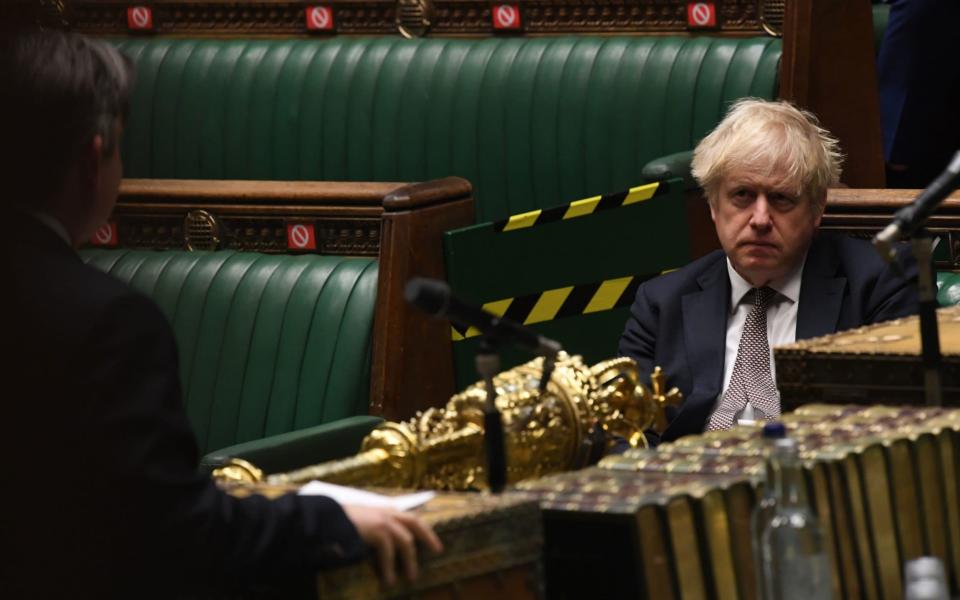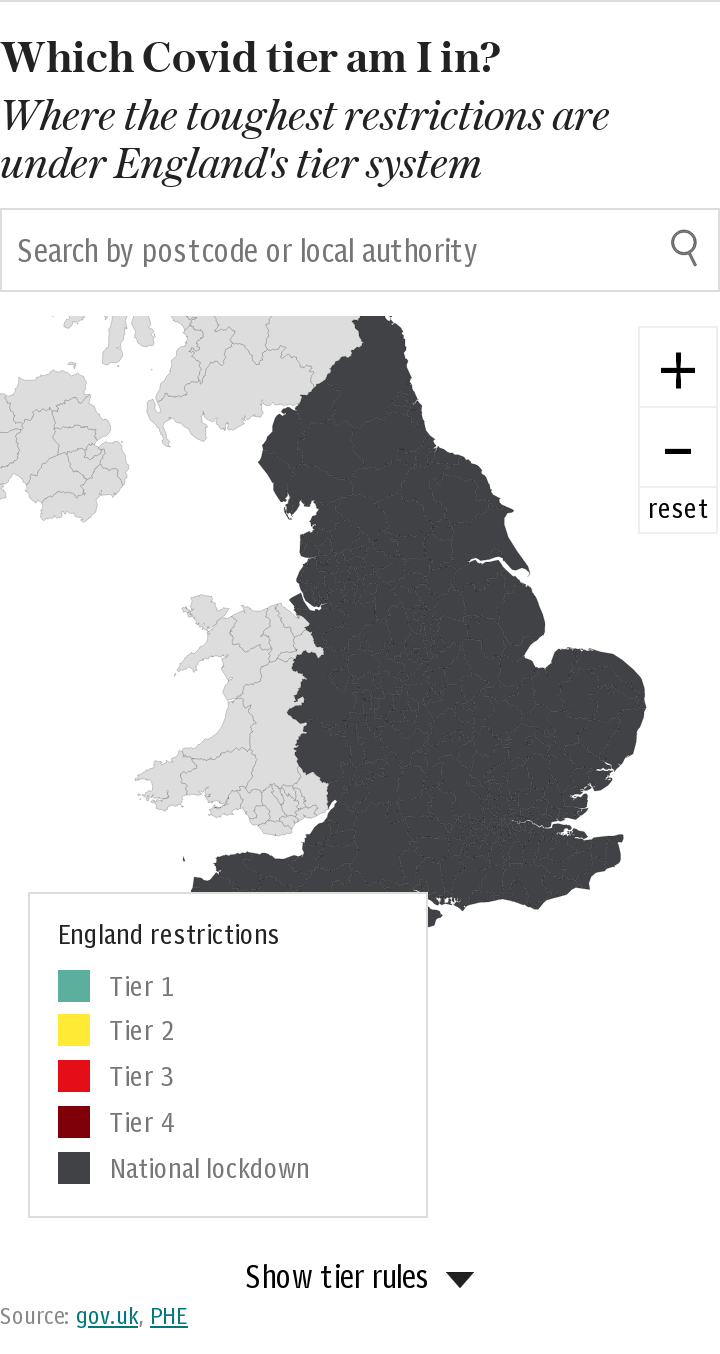Virus tiers could end in nine weeks, Boris Johnson says, to head off mass Tory rebellion

The coronavirus tier system could end in just nine weeks, Boris Johnson told his MPs on Saturday night in an attempt to head off a major rebellion by furious Conservative MPs.
In a letter to Tory MPs, the Prime Minister said he would allow the House of Commons to vote on the new tiers in late January, saying the regulations "have a sunset of 3 February".
The move, which could require a parliamentary vote to extend the restrictions by that date, will be seen as a major concession from the Prime Minister, after up to 100 Tory MPs threatened the biggest rebellion of Mr Johnson's premiership, amid fears the regulations would last until Easter.
There has been widespread anger from all wings of the party over a broad brush approach that has put low incidence areas into higher tiers because they are in the same county as a city with a high infection rate. He also separately wrote to rebel leaders Mark Harper and Steve Baker.
It comes amid increasing hopes of a vaccine being approved by regulators this week, raising expectations that areas can be released from tighter restrictions sooner rather than later, with officials poised to begin inoculation on December 7.

On Tuesday, MPs will vote on plans that will place 99 per cent of England's population in the highest tiers from Wednesday, with only Cornwall, the Isle of Wight and Isles of Scilly placed in the lowest Tier 1.
In a letter sent to all Tory MPs on Saturday night, Mr Johnson said there would be "an opportunity to review all tier allocations at the first review point on Dec 16. At that point we will have a fuller picture of the impact of the national restrictions".
Those expected to benefit from any easing of the system include 16.4 million people living in 88 boroughs in Tier 3 where the Covid-19 infection rate is lower than for some areas in Tier 2.
But he indicated the Government would seek to extend the restrictions until the end of March “as we believe it will be necessary to control the virus through the winter”.

All the tiers would be reviewed against five indicators including case detection rates in all age groups; case detection rates in the over 60s; the rate at which cases are rising or falling; positivity rate (the number of positive cases detected as a percentage of tests taken); and pressure on the NHS.
Mr Johnson said he would personally chair a Cabinet Office committee which will "take the final decision on tier allocations". Decisions will be announced on Dec 17 and come into force on Dec 19.
He added: "We will also consider local views to build the most accurate picture of what is happening on the ground.
Mr Johnson also promised that "ahead of the vote on Tuesday, we will publish further analysis of the health, economic and social impacts of Covid and the measures taken to suppress them".
The Prime Minister's hand could have been forced by the fact that Labour is threatening to abstain in Tuesday's vote, potentially pitching Mr Johnson against his rebels to force through the plans.
A well-placed Labour source told The Telegraph: "We have not yet made a decision. It is not a surprise to say that abstention may be possible. I can't see us voting against."
Anneliese Dodds, the shadow Chancellor, told an online conference: "It is completely irresponsible for the Government to leave Tier 3 areas in the lurch like this again."
More than 23 million people have been placed in the most restrictive Tier 3, in which almost all household mixing is banned, and bars and restaurants are limited to takeaway and delivery services.
Writing in The Telegraph, Mr Harper, the chairman of the anti-lockdown Covid Recovery Group, said: "There is no doubt that Covid is a deadly disease to many and it is vital that we control its spread effectively.
"But we must give equal regard to other lethal killers like cancer, dementia and heart disease, and all the health implications of poverty and falling GDP."
MPs have been particularly angered that they would not be given another say on tiers, potentially condemning some parts of England to the strictest measures until Easter without any Parliamentary oversight.
Mr Johnson's offer does not meet the CRG's demands, after Mr Harper called for "a review point in early January that will allow MPs to renew – or withhold – their support for further restrictions."
He added: "The proposed restrictions are severe, and will have huge repercussions when it comes to people’s health, businesses and livelihoods."
Another rebel Richard Drax, Conservative MP for South Dorset, added: “I am not convinced lockdowns, tiered or otherwise, work, and the devastation they are causing to lives and livelihoods is truly shocking.”
Writing in The Telegraph, Jacob Rees-Mogg, the Leader of the House of Commons, said he understood "the frustrations of the public, and of my colleagues, at these restrictions. I feel them too, profoundly".
He added: "But we need to take these steps to control the virus, protect the NHS from being overwhelmed and ultimately save lives.”

